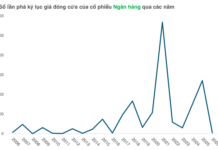“Beware of Scammers: Protect Your Personal and Financial Information”

On October 16, Ms. H (born in 1989, residing in Chuong My, Hanoi) received a phone call from an individual informing her that her son’s VNeID account had not been activated to level 2. The scammer guided her to install the “Dich vu cong” (Public Services) software, take pictures of her ID card, perform facial recognition, and scan QR and fingerprint codes.
Shortly after following these instructions, Ms. H discovered that VND 500 million had been transferred out of her bank account, prompting her to report the incident to the police.
According to the Hanoi Police, this scamming tactic, where fraudsters pretend to guide citizens through the level 2 e-identification process, is not new. However, many individuals remain unaware of such scams, as they may not keep up with social and media updates, making them vulnerable to these deceptive schemes.
In these scams, the fraudsters typically impersonate police officers and inform citizens that their ID cards are faulty or that their personal information needs to be updated. They then request citizens to install fake “Public Services” software, which they provide. Since July 1, banks have implemented biometric authentication for certain online transactions, so scammers will also ask individuals to provide ID card photos and perform facial recognition. By installing this malicious software and completing the biometric authentication, victims unknowingly give the scammers control over their phones, allowing them to transfer money from their bank accounts and payment apps.
To avoid falling victim to such scams, the Hanoi Police advise citizens to be vigilant and aware of this tactic. It is important to remember that level 2 e-identification activation must be done in person at the local police station or during the ID card issuance process and cannot be done online. Do not comply with requests from unknown callers claiming to be government or police officials. Never provide personal information, bank account details, or OTP codes to strangers, as this could lead to financial loss. Refrain from installing unverified software to prevent giving scammers control over your device. If you encounter any signs of fraud, promptly report it to the police to take legal action and prevent further harm.
“Bank Rolls Out Feature to Block Transactions to Scam-Linked Accounts”
“In a bid to safeguard customers from the scourge of tech-savvy criminals, select banks such as VPBank are taking proactive measures. The bank is developing an innovative feature to block deposits into accounts flagged for fraud within their internal database system, with plans to extend this protection across the inter-bank network. This forward-thinking approach is a testament to their commitment to protecting customers from the ever-evolving schemes of high-tech fraudsters.”
The Great Bank Heist: Unraveling the Mystery.
On September 28, the Police Investigation Agency of Phu Quoc City Police (Kien Giang) announced that they had executed an emergency arrest warrant and conducted a search of the residence of Le Van Duc (born 1988, permanent residence: Duong Bao hamlet, Duong To commune, Phu Quoc City) due to his involvement in fraudulent activities and appropriation of property.
The Scam Account Epidemic: A Success Story.
A 72% decline in scam accounts; the power of biometric authentication.
As of July 1st, there has been a significant decline in the number of reported money transfer scams, with only 700 cases reported, and a mere 682 accounts associated with fraudulent activity. This remarkable decrease of 50% and 72% respectively, is attributed to the mandatory implementation of biometric authentication, a game-changer in the fight against scams and fraud.










































